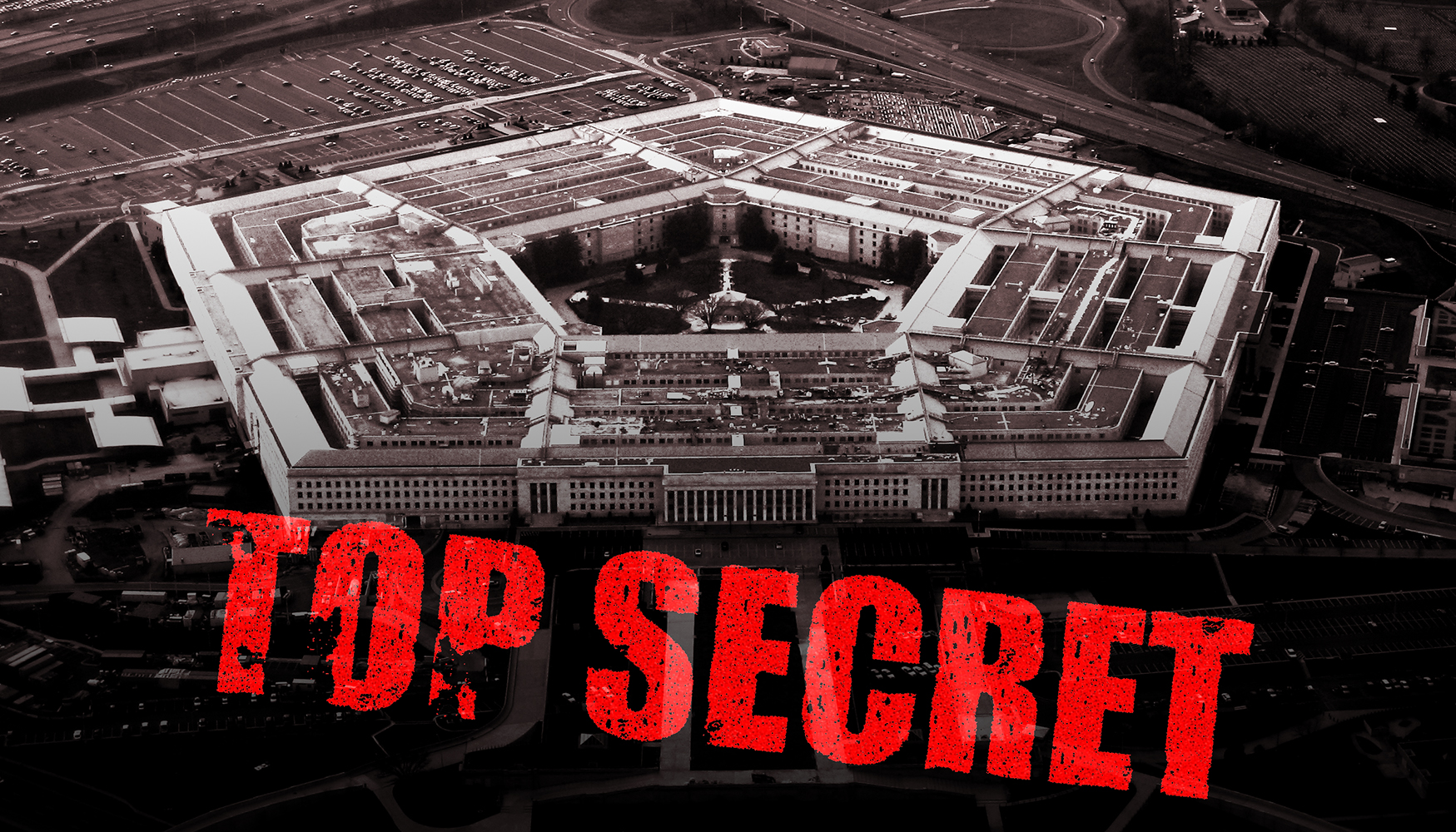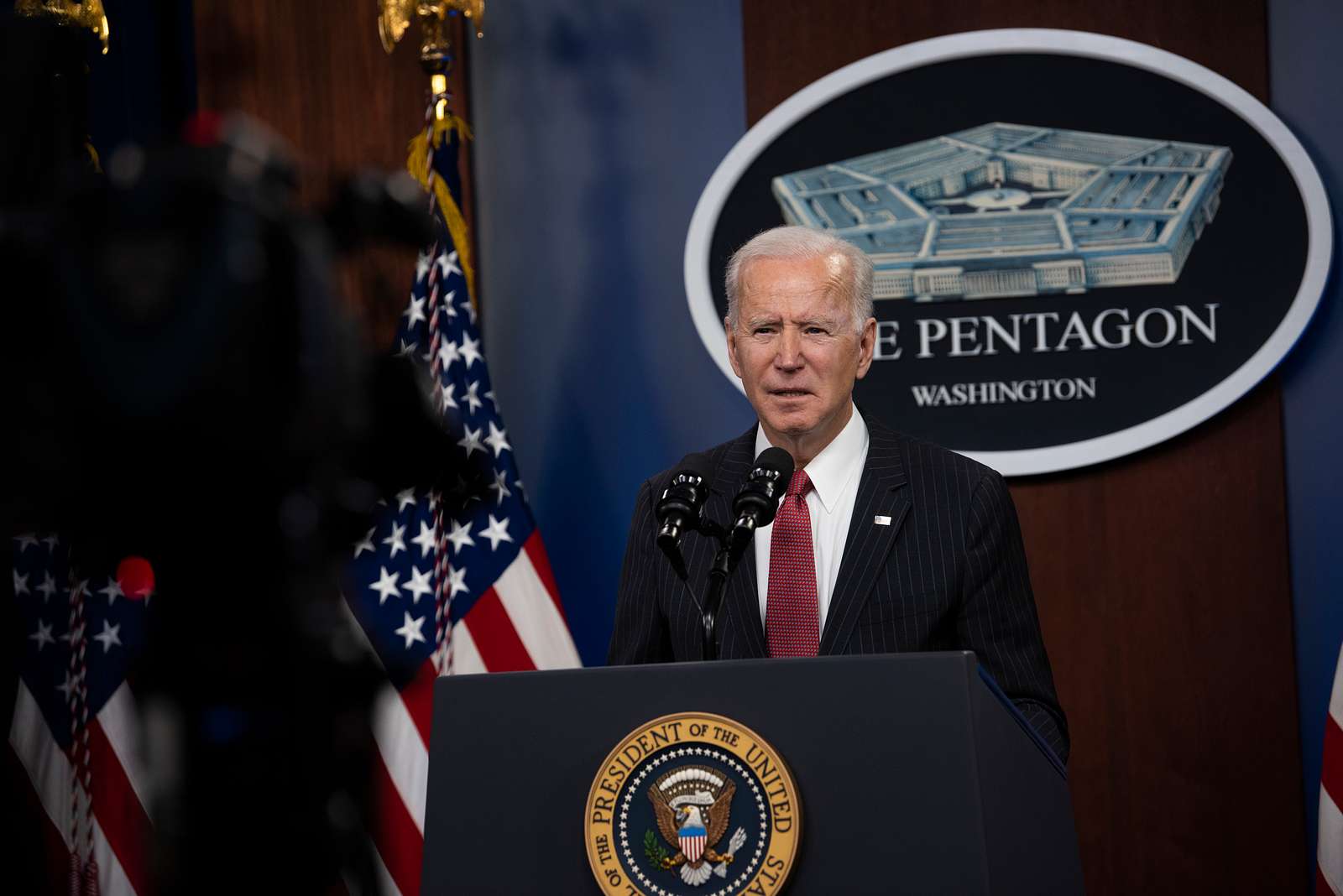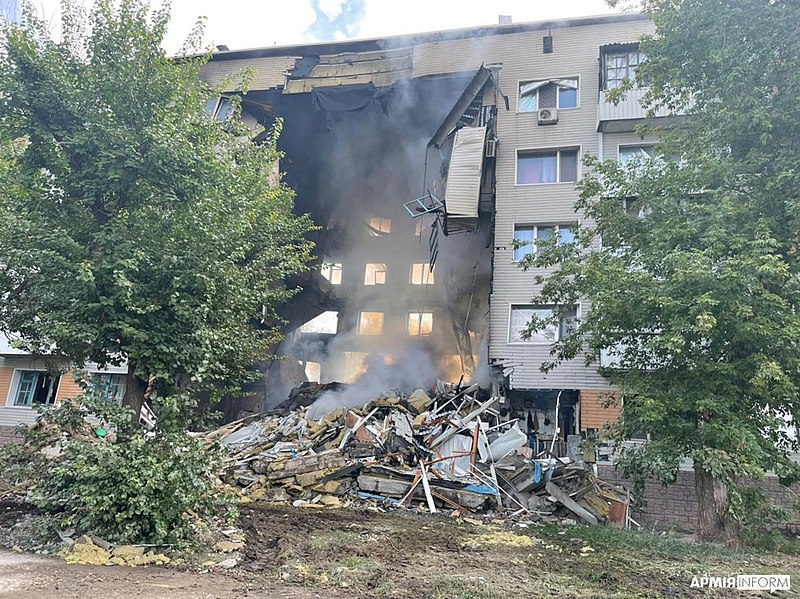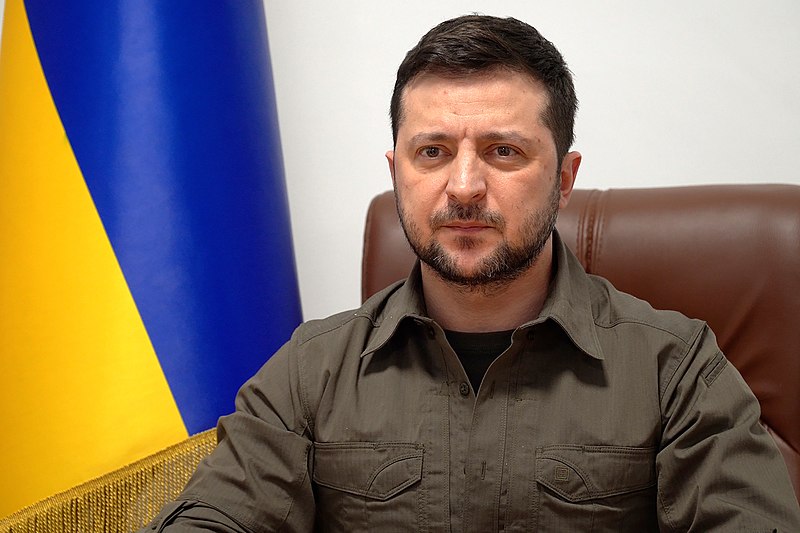
U.S. officials are reeling from a major leak of over 100 pages of highly sensitive intelligence, uploaded to the internet by persons unknown [now alleged to be 21-year-old Air National Guardsman, Jack Teixeira – 14/4], and first shared by gamers on Discord. The wide-ranging documents lift the lid on the extent of U.S. involvement in the Ukraine War, the serious difficulties faced by the Ukrainian side, the role of the Israeli secret services in fomenting mass protests against the Netanyahu regime, and much more besides.
This highly embarrassing blow to the prestige of the U.S. state will severely undermine the confidence of its allies—many of whom (as revealed by the documents) are being actively spied on by Uncle Sam. The leak also happens to confirm much of the analysis of world politics we have presented in recent months, proving once more the advantage Marxist analysis permits us, of foresight over astonishment.
Images of the documents, which Pentagon officials have confirmed as legitimate (bar some that have been altered after the fact), are widely circulating on social media platforms like Telegram and Twitter. Many are clearly marked “Top Secret” and NOFORN (Not Releasable to Foreign Nationals), meaning they cannot be shared with foreign intelligence agencies, including the Five Eyes (allied spy agencies in the U.S., Canada, the United Kingdom, Australia and New Zealand).
This was clearly a leak from within, rather than any sort of external cyber attack. The top secret intelligence, which was supposed to be viewed only by high-ranking officials in the U.S. security services and the presidents’ office, has been printed, folded (presumably after being stuffed in someone’s pocket), and then photographed. Various items such as Gorilla Glue and a scope for a hunting rifle can be seen in the background of a number of the images, suggesting they were taken in the same location.

The Biden administration is in full damage-control mode. An investigation has been opened by the Justice Department into how the leak was sprung, with the Pentagon reportedly “working around the clock” and Defense Secretary Lloyd Austin vowing to turn over “every stone” to find the source. Furthermore, Secretary of State Antony Blinken has spoken to American allies to “reassure them about our… commitment to safeguarding intelligence.”
Despite the U.S. attempting to project a message that “everything is under control”, compromised nations have responded with a combination of outrage, incredulity, and denial. Meanwhile, an article by Politico reports dismay at the Pentagon, with one unnamed official saying: “I’m sick to my stomach… It’s a massive betrayal.”
Pessimism on Ukraine
The most damning revelations, from the perspective of U.S. imperialism, concern the Ukraine War. Despite continual public chest thumping in the West about Ukraine’s military successes and impending counter-offensive, increasingly cautious assessments from some U.S. officials in recent months are corroborated by the leak.
The highly detailed documents (apparently produced by the Office of the Director of National Intelligence), which depict maps of hot spots like Bakhmut, reveal major weaknesses in Ukraine’s air defences. These have been worn down by relentless Russian missile attacks, and are critical in preventing Russia from bringing its air force to bear. The documents also cite how “enduring Ukrainian deficiencies in training and munitions supplies probably will strain progress and exacerbate casualties during the [upcoming] offensive.”
This tallies with reports that, in some areas, Ukrainian soldiers are running out of western munitions, forcing them to utilize less accurate, Soviet-era howitzers, and are having to ration shells. High casualties are making Kyiv reach deeper into its population to replenish its troops, with men being forcibly handed draft notices on the street. Already, there were reports in recent weeks of poorly trained, newly mobilized troops arriving on the front lines, and that the average life expectancy of a new Ukrainian conscript in Bakhmut is just four hours.
It is possible that Ukraine is building up fresh troops separately from hot zones in preparation for the ground hardening in the spring. The leaks also indicate serious problems with supplies and morale on the Russian side, pointing to the penetration of U.S. intelligence at a high level of Russia’s military.

Nevertheless, a leaked assessment from early February, of Kyiv’s plans for a counteroffensive in the East and South, suggests shortages of troops, ammunition and material mean that its military will likely fall “well short” of its goals, and reclaim far less territory than the major push in Kherson and Kharkiv last year. In all, it concludes the battle for the Donbas is “likely heading toward a stalemate” – which might even be overly optimistic.
Moreover, Ukraine has long signalled its intention to sever Russia’s land bridge to Crimea, which it uses as a supply route for its war effort. As a result, Russian forces have been considerably beefed up in and around the peninsula. According to the documents, Ukraine’s allies in Capitol Hill are sceptical of its chances of success in this endeavour, running contrary Washington’s pledge to support Ukraine in all of its war aims, to the bitter end.
Proxy war
The Ukrainians have tried to brush off the impact of the leak, with an unnamed senior official quoted in the Washington Post claiming that much of the information was public knowledge anyway. “It’s been obvious to everyone since November that the next counter-offensive will be focused on the south, first Melitopol and then Berdyansk,” he said. “But the exact place—we can change that the week before.” However, an advisor to Ukrainian president Volodymyr Zelenskyy revealed to CNN on Monday that Ukraine has been forced to alter at least some of its plans for the spring counter-offensive.
Also, it seems that these assessments are based on sensitive human and signals intelligence, i.e., intercepted communications and information passed on by agents deep within the Russian military forces and Wagner mercenary group, which have now been potentially compromised. But the biggest danger from Kyiv’s point of view is the impact on the unity of its western allies. As the Washington Post comments in an article titled, “The most damaging part of the leaked Ukraine documents is the leak itself”:
“Even as Kyiv’s forces have held fast in the face of Russia’s offensive in eastern Ukraine over the past two months, there is no secret about the West’s anxieties over its own ability, and its will, to continue resupplying Ukrainian troops in a war that looks likely to drag on for many more months or longer. In the Ukraine fight, Putin might plausibly regard his most potent weapon to be the conflict’s most open secret—that the longer the battles drag on, the more pressure will build on Ukraine’s allies to sue for peace, on any terms. No leaks are likely to change that calculus.”
Furthermore, the leak lays bare the character of this conflict, which (as we have repeatedly stated, from the very beginning) is a proxy war between NATO—with the U.S. at its head—and Russia, staged on Ukrainian soil. As the New York Times comments:
“The 100-plus pages of slides and briefing documents leave no doubt about how deeply enmeshed the United States is in the day-to-day conduct of the war, providing the precise intelligence and logistics that help explain Ukraine’s success thus far. While President Biden has barred American troops from firing directly on Russian targets, and blocked sending weapons that could reach deep into Russian territory, the documents make clear that a year into the invasion, the United States is heavily entangled in almost everything else.
“It is providing detailed targeting data. It is coordinating the long, complex logistical train that delivers weapons to the Ukrainians… Many pages seem to come right out of the briefing books circulating among the Joint Chiefs of Staff, and in a few cases updates from the CIA’s operations centre.”
The Post further describes U.S. officials holding tabletop exercises with the Ukrainian military brass, to explore different scenarios and develop detailed orders of battle. The documents also suggest that the U.S. have been monitoring Zelenskyy’s calls with defence and military officials. The fact that the weaponry is in Ukrainian hands is clearly a secondary detail. For all intents and purposes, the Russians are fighting a NATO equipped, trained and led army, with the U.S.A. in command. It is for this reason, and this reason alone, that the Ukrainians have been able to hold out for so long.
The leak also points to the direct involvement of other western powers. Another of the leaked documents, dated March 1, 2023, suggests that the U.S., Britain, France, Latvia and the Netherlands all have special forces active in Ukraine. The British allegedly have by far the most boots on the ground (50), compared to 15 for France and 14 for the U.S.. While these claims have been disputed by both the British and French Ministries of Defence, it is known that western special forces are present in Ukraine at the very least in non-combat roles. This is further proof (were any needed) that this war is an indirect clash between Russia and the West, in which the danger of a wider war remains implicit.
‘A nightmare’
There are other revealing tidbits from the leak, such as details of an incident in Oct. 2022 when a British surveillance plane was allegedly almost shot down by a Russian fighter jet. A CIA document also refers to a pro-Russian hacking group that had broken into Canada’s gas distribution network and was “receiving instructions from a presumed Federal Security Service (FSB) officer”, apparently in anticipation of a destructive attack. In all, the disclosures were aptly summed up by an unnamed Western intelligence official as “a nightmare.”
It is common knowledge that all capitalist powers spy on one another, but having this aired in public has drawn the ire of Washington’s allies. In particular, the regime in Seoul was infuriated by evidence that the U.S. had been spying on the South Korean National Security Council. The leaked documents describe the South Koreans wrestling with a request from the U.S. to provide 330,000 rounds of artillery ammunition to Ukraine in time for their spring counter-offensive, a request that has never been publicly confirmed.

The Yoon Suk-yeol administration was reluctant to send shells that might end up in Ukraine either to the U.S. or Poland, because it did not want to provoke Moscow, with whom it cooperates in containing North Korea. The Americans’ typically silent and obedient lapdog in Seoul raised a rare growl over the leak, which it described as a “a super-scale security breach”. It condemned US espionage as “a self-damaging act against national interest that undermines the South Korea-US alliance… violating the sovereignty” of a key ally.
Another CIA document, dated from March, suggests that Mossad played a role in whipping up the recent mass protest movement against Benjamin Netanyahu’s sweeping judicial reforms in Israel. While these allegations were rejected by the Israeli government, which attributed the claim to the “American press”, it would confirm our analysis that these protests have been backed by a majority of the big capitalists in Israel, who are attempting to reign in the maverick Prime Minister, and that they have succeeded in dividing the state.
Elsewhere, the leaks reveal U.S. imperialism’s slackening grip over some of its other allies. One classified document outlines plans by the Egyptian regime of President Abdel Fattah El-Sisi (a major recipient of American aid) to produce large quantities of munitions for Russia. Another claims that Russian intelligence officers had persuaded the United Arab Emirates to “work together against U.S. and U.K. intelligence agencies.” Both Cairo and Abu Dhabi were quick to deny these allegations, which if true would be a further testament to the relative decline of U.S. imperialism on the world stage.
‘Here’s some leaked documents’
U.S. officials have been scrambling to stem the tide of classified information. Coordinator for Strategic Communications at the National Security Council, John Kirby, made a belligerent statement to the press saying: “This is information that has no business in the public domain… It has no business… on the front pages of newspapers or on television.” While a number of media outlets, including the typically Biden-bashing Fox News, have shown their deference to U.S. imperialist interests by complying, Kirby’s attempt to put the genie back in the bottle was too little, too late. Details from the leak are already all over the news in countries across the world, and spreading widely on the internet.
A number of features of this leak make it particularly problematic for Washington. Aside from the clear fact that it was an inside job (which raises doubts about the integrity of its own security forces), the timeliness of this intelligence is very damaging. Many of these documents refer to ongoing operations and are dated to within weeks or days of the leak. The way these images found their way online is also especially embarrassing.
Details of the original leaker remain scant, though a Washington Post article points to a member of “Thug Shaker Central”, a (now defunct) “invitation-only clubhouse”, formed on Discord in 2020 by a group of roughly two dozen men “united by their mutual love of guns, military gear and God.” The alleged leaker, known to online friends as “OG” [suspected to be Teixeira], was on the server, and claimed to work on a military base.
The images were confirmed to have been uploaded in early March to a Discord server managed by “wow_mao”, a 20-year-old British-Filipino college student and minor internet celebrity, whose content largely deals in gaming and memes.
From there, they ended up on yet another Discord server dedicated to the videogame Minecraft, during which a user tried to win an argument about the Ukraine War by posting images of 10 documents marked “Top Secret” with the message “here, have some leaked documents”, to which another replied, “nice.” After that, pictures of the documents spread like wildfire, particularly on pro-Russian Telegram and Twitter accounts.
Despite the farcical nature of this leak, it is not the first time sensitive information from the heart of the U.S. security services have wound up in niche online communities. Last year, a self-described “hacktivist” known as “maia arson crimew” uploaded a 2019 version of the U.S. government no-fly list to her (pink and cat-covered) personal blog. Moreover, the popular vehicular combat simulator game “War Thunder” has become such a common source of classified military documents (uploaded by military geeks to win arguments about the capabilities of active armour), the developers have been forced to enact specific policies to curb the practice.

Describing the leak as “hilarious” in a New York Times interview, wow_mao reflected on how these documents “spread onto the nicheiest, nerdiest parts of the internet. That’s the kind of people who would find these documents—losers. That’s who the U.S. government really has to fear… Young, tech-savvy people often have less respect for government, and they’ll always find it funny to mock them and cut under them in some sort of way.”
It is a matter of deep humiliation for the U.S. security services that its wall of secrecy has proved so easily permeable to online misfits. The irreverence with which this information is obtained and shared also testifies to the diminished authority of the U.S. state in the eyes of the population, and particularly the youth.
The brazenness of this leak has led some to speculate that it might have been deliberately orchestrated on the U.S. side. Perhaps to prepare public opinion in advance of impending defeats for Ukraine, or to put pressure on Kyiv’s allies to accelerate arms shipments by illustrating the real situation on the ground. If so, the U.S. and its allies are doing a good show of making this look like a genuine shambles.
For now, we will assume this was real leak that has illustrated points we have continually raised in recent months: that the state of the war in Ukraine is nothing like the public pronouncements in the West; that it is Washington, not Kyiv that calls the shots; that the “western alliance” is more fragile than it appears; and that the U.S. is constantly gathering illicit information even on its “friends”—although we hardly needed 100 pages of top secret intelligence to draw such conclusions.

